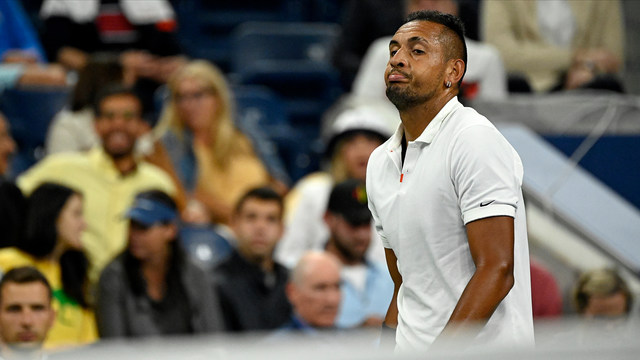Argentinian chair umpire Damian Steiner was removed by the Association of Tennis Professionals (ATP) for giving interviews without consulting the ATP about accepting those. Among the players, Nick Kyrgios and Serena Williams continued with their less-than-respectful behaviour. Kyrgios towards the ATP which docked him $113,000 in fines for his rants against Fergus Murphy in Cincinnati. And, Williams towards Carlos Ramos, who umpired her 2018 US Open final against Naomi Osaka.
These incidents are revealing of the dichotomy spanning the players and the officials’ positions. Let us look at the players’ side of this chasm first. Kyrgios’ had no remorse about his behaviour against Murphy. Neither was he upset about being fined. Nonetheless, he attempted to duck from his mistakes by blaming the ATP for the penalty.
“Not at all. The ATP is pretty corrupt anyway, so I’m not fussed about it at all,” Kyrgios replied to a question about the fine in his post-match press conference. He, then, turned into a quasi-interrogator as if perplexed by the question, and the fine. His rhetorical question was, “I got fined 113K for what? Why are we talking about something that happened three weeks ago when I just chopped up someone first round?”
Kyrgios’ lackadaisical approach towards rectifying his errors was infuriating. But perhaps not to the same level as the exasperation evoked by Williams’ words, in her press conference.
After her first-round win over Maria Sharapova, Williams, in response to a question about Ramos not umpiring her matches at the event this year, chose to be snarky instead of giving a straight answer. “Yeah, I don’t know who that is,” she stated impassively as though the person and the events of the previous year did not concern or involve her.
Now, imagine a scenario in which either Murphy or Ramos, or both wanted to speak up and finally decide to share their vexations about receiving such attitude from the players in an interview. They cannot even do that without seeking permission from the sport’s governing authorities. Moreover, a message was sent in making an example out of Steiner that umpires did not have the backing of their job if they decided to forgo the rules.
The game’s viewers may take it as in indication that tennis’ rules belonged to the “never to be broken” category. However, this move will only embolden the players to be more abrasive and impolite to the umpires. Instead of looking at them as maintainers of the game for the duration of the match.
Case in point: Stefanos Tsitsipas’ ranting at Damien Dumussois when the Frenchman asked him to quicken his time at change of ends. “You have something against me. You’re French, probably. … You’re all weirdos,” he went on, insulting not only the umpire but also his nationality, and his countrymen.
Undoubtedly, it was said in momentary anger because of how the match was turning against him. Yet, if the rules are to be so correctly enforced – and they were in this instance, in Dumussois asking the eighth-seed to speed up – players ought not to complain.
However, grievances – actual and perceived – are bound to come up. As such, sanctioning players with fines (and even suspension) for raging at the umpires is a stop-gap remedy. Players will not – and did not – hesitate to fulfil the terms of their punishment. They will also continue with their tirades, as and when things do not go their way in a match.
On the other hand, for the umpires, this is like a repetitive cycle of viciousness. Tennis’ managerial authorities need to incorporate a system in which the umpires get to openly communicate about the players’ misconduct without being isolated, and treated as the sport’s second-rung members.






